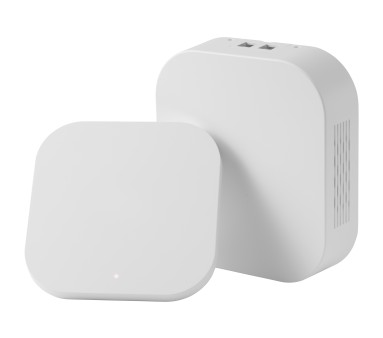
Next Day Delivery
Next Day Delivery
Safe & Secure Payments
30 Day Easy Return
Business Discounts Available
At Utility Networks, we understand the paramount importance of robust security measures in safeguarding your IT infrastructure. In today's world, where cyber threats are constantly evolving, ensuring the security of your wireless networks is crucial. We are dedicated to providing our clients with cutting-edge security solutions tailored to protect their data and maintain the integrity of their systems.
Our team of experts at Utility Networks is committed to delivering comprehensive security solutions that encompass the latest technologies and best practices. From network design and implementation to ongoing monitoring and support, we ensure your systems are secure at every level.

Always use WPA3 (Wi-Fi Protected Access 3) for the best security. If your devices don't support WPA3, use WPA2 as a minimum. Avoid outdated protocols like WEP, which are vulnerable to attacks.
Change the default usernames and passwords of your wireless routers and access points. Default credentials are widely known and can be easily exploited by attackers.
Keep your wireless router and connected devices up-to-date with the latest firmware and software updates. These updates often contain security patches that address vulnerabilities.
Use complex and unique passwords for your wireless networks. A strong password should be at least 12 characters long and include a mix of uppercase and lowercase letters, numbers, and special characters.
Encrypt your wireless network traffic to prevent unauthorised access. Consider using VPN services.
WPS is convenient but has known security flaws. Disabling it reduces the risk of unauthorised access to your network.
Create separate networks for different types of users and devices. For instance, have a guest network for visitors and a separate network for critical business operations. This limits the potential impact of a security breach.
Use network monitoring tools to keep an eye on your wireless network's activity. Look out for unusual patterns that might indicate unauthorized access or other security issues.
Restrict access to your wireless network to only those who need it. Use MAC (Media Access Control) address filtering to allow only specific devices to connect to your network.
Provide regular training to your employees on the importance of wireless security and best practices. Awareness is a key component of a secure environment.
By choosing Utility Networks, you are partnering with a team dedicated to keeping your data secure and your business operations uninterrupted. Contact us today to learn more about our wireless security solutions and how we can help protect your network, we are here to help!
There are some great resources available from the National Cyber Security for Small Businesses.
Network security is crucial because it protects sensitive data from cyber threats, ensures the integrity and availability of network resources, and maintains the privacy and confidentiality of users. It helps prevent data breaches, identity theft, and other cybercrimes.
Malware: Malicious software such as viruses, worms, trojans, and ransomware. Phishing: Fraudulent attempts to obtain sensitive information by disguising as a trustworthy entity. Denial-of-Service (DoS) Attacks: Attempts to make a network service unavailable by overwhelming it with traffic. Man-in-the-Middle (MitM) Attacks: Intercepting and altering communication between two parties. SQL Injection: Inserting malicious SQL code into a query to manipulate a database.
Firewalls are network security devices or software that monitor and control incoming and outgoing network traffic based on predetermined security rules. They create a barrier between trusted internal networks and untrusted external networks.
Encryption is the process of converting data into a coded format to prevent unauthorized access. It is crucial for protecting sensitive information during transmission and storage, ensuring that only authorised parties can read the data.
A Virtual Private Network (VPN) creates a secure, encrypted connection over a less secure network, such as the internet. It enhances security by masking the user’s IP address and encrypting all data sent and received.
MFA is a security process that requires two or more verification methods to authenticate a user. It adds an extra layer of security by combining something the user knows (password), something the user has (security token), and something the user is (biometric verification).
This site uses cookies to store information on your computer. Some of these cookies are essential to make our site work and others help us to improve by giving us some insight into how the site is being used. By using our site you accept the terms of our Privacy Policy.
Privacy Policy